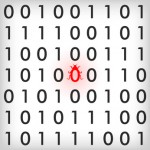 Normally, loggers are used to track down bugs, but today, I present a Logger class method that contains a bug itself — isn’t it ironic?
Normally, loggers are used to track down bugs, but today, I present a Logger class method that contains a bug itself — isn’t it ironic?
Logger::logbuf() takes ‘len’ bytes of binary data from memory pointed to by ‘buf’ and converts it into printable, zero-terminated hex strings ala “AA 01 B3 C4…”.
For efficiency and readability, the hex string is broken up into smaller parts. Every hex string part is fed to the existing Logger::log() method which is capable of outputting arbitrary, zero-terminated strings (a new-line character is appended automatically).
Happy bug hunting! I will post the solution in two weeks time.